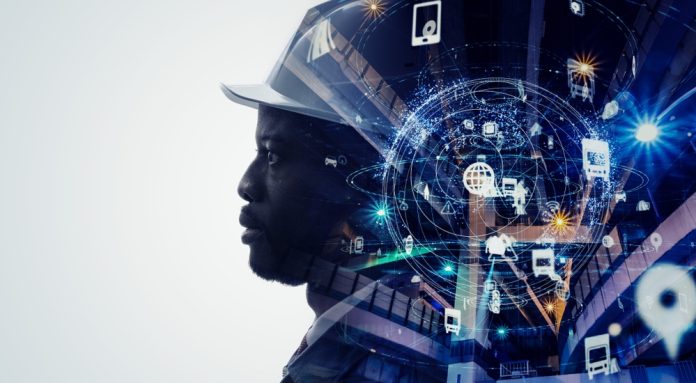
We’re at what some are calling the “printing press moment” with artificial intelligence (AI)—a once-in-a-generation shift that’s changing the employee experience faster than we ever imagined. The way we work is evolving. AI is taking over many repetitive tasks, freeing us up to focus on what we do best: meaningful, human work.
But this shift isn’t just about augmenting individual roles. AI is reshaping the entire skills ecosystem, driving a global need for highly skilled technical workers. In the U.S. alone, for example, companies will need to hire or create nearly 2 million new tech roles over the next five years. And 44 percent of workers’ skills will be disrupted in the next five years, according to the World Economic Forum.
As AI continues to change work, the skills required for many jobs will change—meaning employees must engage in continuous learning to stay relevant, businesses need to focus on hiring employees who will adapt with the necessary technical and human skills, and leaders should enable ongoing upskilling and reskilling.
A phrase I hear often from HR leaders is, “AI won’t replace you, but someone using AI will.” This sums up the opportunity and urgency of the moment perfectly. Looking ahead to 2025, we, as leaders, have a responsibility to upskill and reskill our teams to ensure they can thrive and continue adding value to our organizations.
3 Trends
Here are three key trends I believe will shape L&D and HR in 2025:
-
Skills intelligence becomes the new foundation.
By 2025, traditional organizational structures—like job titles, rigid hierarchies, and standard job descriptions—will no longer cut it. We’re shifting from a role-centric model to a skills-centric model, and it’s happening faster than most of us expected.
Forward-thinking companies understand the need to know both the current capabilities of their workforce and the skills they’ll need in the future. To bridge this gap, they’re turning to skills intelligence. With AI-driven platforms, companies can map their existing skills, identify gaps, and plan for targeted upskilling and reskilling.
This also can help with career development and internal mobility. By integrating skills intelligence into L&D strategies, HR teams can offer employees personalized growth paths that align their current skills and goals with future opportunities within the organization. They also can use skills intelligence to deliver tailored trainings to employees at the exact moment they need help. This helps boost engagement and retention, while positioning the company for long-term success.
-
AI will transform how learning gets delivered.
In 2025, we’ll say goodbye to the one-size-fits-all learning model. Employees now expect learning to be seamlessly integrated into their work, tailored to their needs, preferences, and schedules.
Innovative companies will leverage AI to create predictive and personalized learning experiences that are delivered exactly when employees need it. AI-powered recommendation engines will suggest the most relevant content based on an individual’s skills, career goals, and learning history. Plus, conversational AI assistants will be available around the clock, answering questions and delivering microlearning experiences right in the flow of work.
For example, say you’re a manager preparing for a quarterly growth conversation. Imagine if, a week before the conversation, you receive a targeted recommendation for a training focused on providing constructive feedback. That training recommendation comes just-in-time, at the exact moment you need it, ensuring content is fresh and you’re well-prepared for the conversation.
For L&D teams, creating learning content will shift dramatically. Today’s process is manual and time-intensive, with teams spending weeks researching, writing, and formatting each course. AI transforms this by automating content creation, generating practice exercises, and converting training materials between formats. This frees L&D professionals to focus on strategy and learning experience design since AI helps them quickly find and customize existing content rather than always building from scratch.
-
HR leaders will be key to driving business success.
In 2025, the adoption of AI for workforce transformation will be more than just a technological shift—it will be a people challenge. HR leaders will be at the forefront of ensuring companies meet their business goals by focusing on the people side of transformation. From upskilling and reskilling employees to managing the cultural shifts AI introduces, HR’s role will be pivotal in driving business performance.
For example, HR leaders must work closely with business leaders to design upskilling and reskilling programs that ensure employees can continue to learn and grow. This isn’t just good for employees, it’s also good for business.
Beyond talent management, HR leaders will play a key role in navigating the cultural shift toward AI. Employees might have concerns about job security or AI bias, and HR leaders need to address these issues, showing how AI can enhance—not replace—human work. Change management and open, honest communication are essential here.
In short, HR leaders will become a critical partner to the CEO, CFO, and other C-suite leaders in managing the profound changes AI will bring to the world of work. By aligning talent, technology, and culture, HR leaders have an opportunity to unlock AI’s full potential to drive organizational success.
As AI continues to transform L&D and HR, the organizations that will thrive in 2025 will be those that embrace skills intelligence technology, lean into AI for learning and development, and empower their HR leaders to drive the cultural and strategic shifts necessary. AI isn’t here to replace us—it’s here to enhance our abilities and help us unlock new potential. The companies that prepare their people to work alongside AI will be the ones that succeed in the future.




